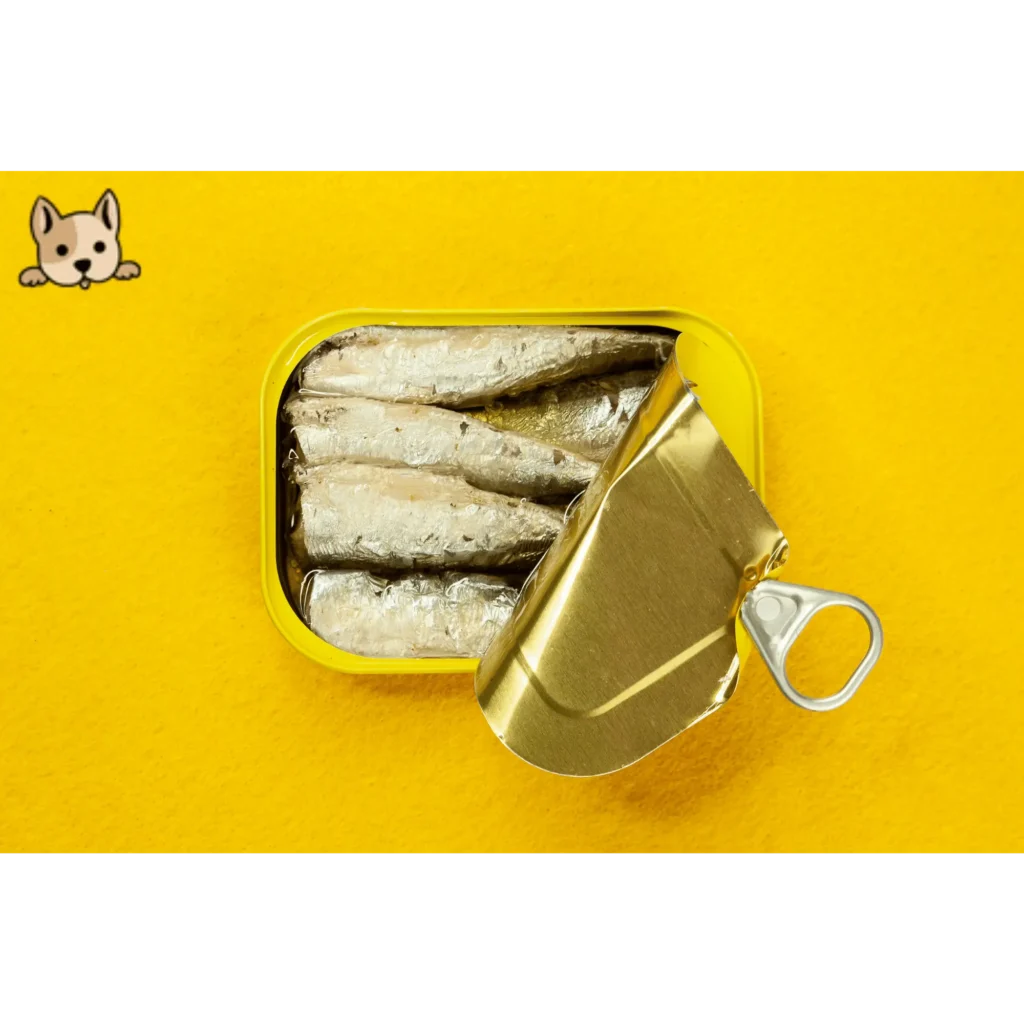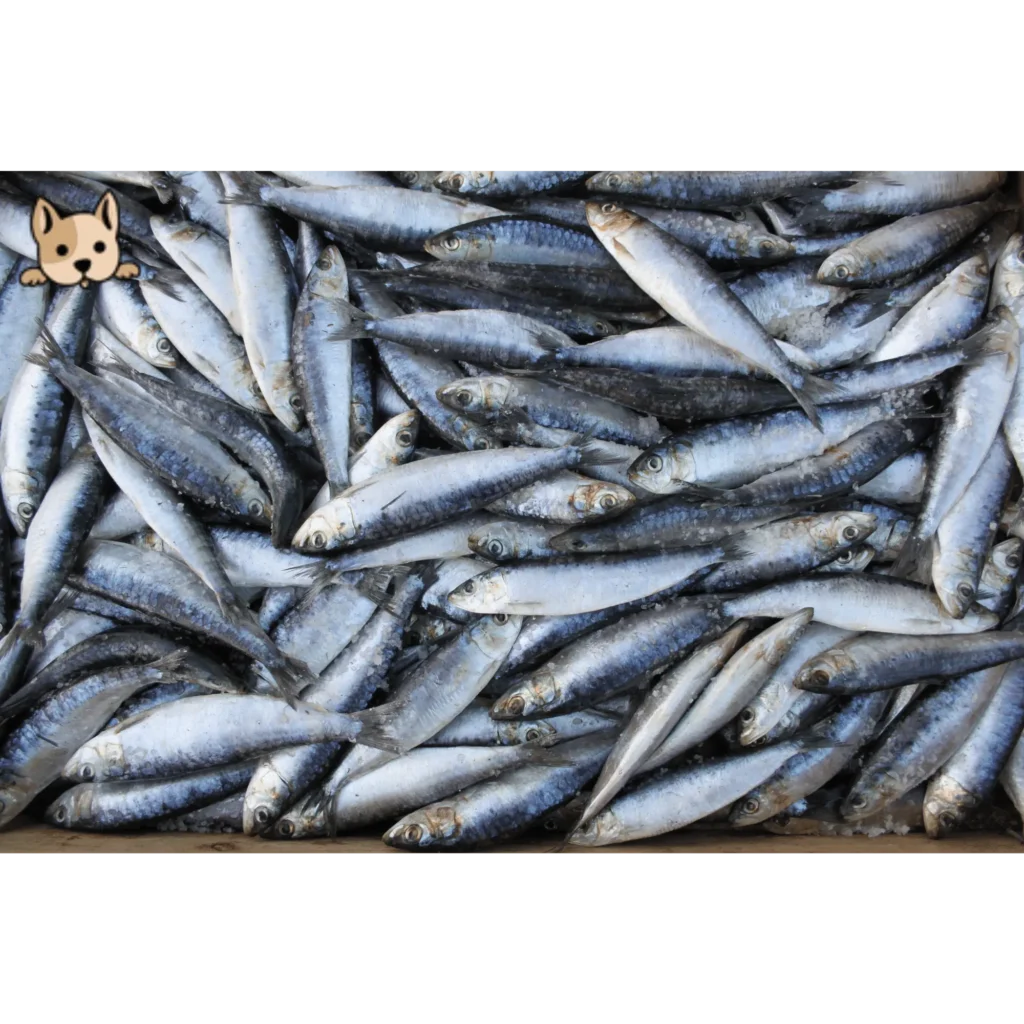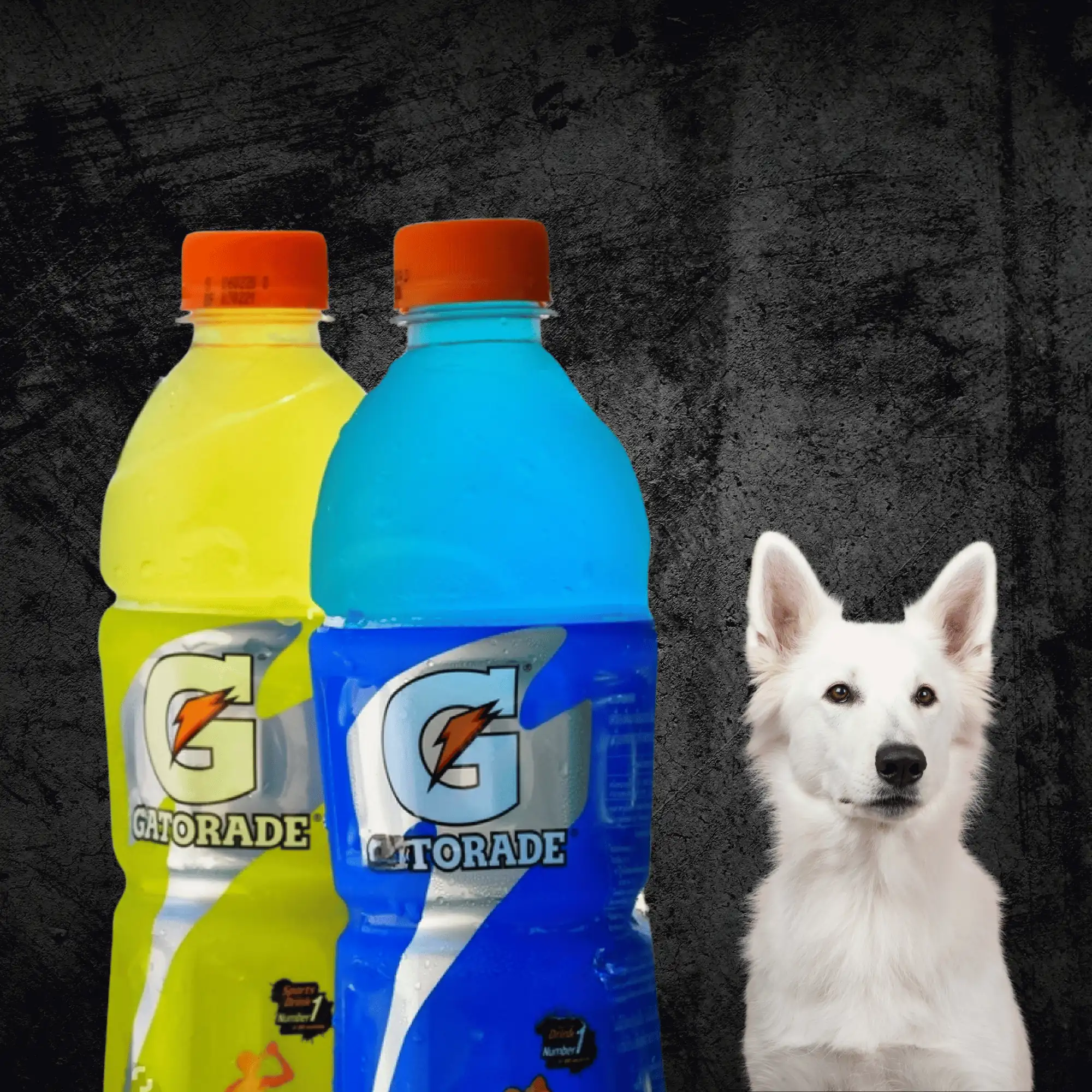Sardines are a popular human seafood choice, packed with omega-3 fatty acids, protein, and other essential nutrients. But are they suitable for dogs? Many dog owners prioritize providing their furry companions a balanced and nutritious diet. When considering new food options, sardines often come to mind. These small, oily fish are not only loved by humans for their flavor but also recognized for their nutritional value. However, before adding sardines to your dog’s menu, it’s essential to determine whether they are safe and beneficial for canine consumption.
In this article, we’ll delve into the question: Can dogs eat sardines? We’ll examine the nutritional benefits, potential risks, and best practices for incorporating sardines into your dog’s diet, ensuring you have all the information you need to make informed decisions about your furry friend’s nutrition.
Here are the topics we’ll explore in this blog post:
- What are Sardines?
- Can Dogs Eat Sardines?
- Can Dogs Eat Canned Sardines?
- Are Sardines Safe for Dogs to Eat?
- Health Benefits of Sardines for Dogs
- Potential Risk of Sardines for Dogs
- Selecting the Right Sardines for Dogs
- How Do You Safely Feed Sardines to Your Dogs?
- Consult Your Veterinarian
What are Sardines?

Sardines are small, silvery fish that belong to the herring family. They typically measure between six to 12 inches in length and are found in open oceans worldwide. Considered one of the most sustainable seafood options, sardines are abundant and often found in large schools.
These fish are oily and fatty, similar to anchovies, and can be purchased in various forms, including canned, jarred, fresh, or frozen. Sardines are packed with protein and are especially rich in omega-3 fatty acids, which are known for their heart-healthy benefits. They also contain CoQ10, an antioxidant that supports heart and neurological functions.
Additionally, sardines are a good source of essential vitamins such as B12 and D, as well as minerals like calcium and selenium.
Can Dogs Eat Sardines?
Yes, dogs can eat sardines. Sardines, also known as Pilchard, are a nutritious source of omega-3 fatty acids, protein, vitamins, and minerals that can benefit your dog’s overall health. However, it’s important to feed them plain sardines without added salt or seasoning and to remove any bones to prevent choking hazards.
As with any new food introduction, it’s best to start with small portions to ensure your dog tolerates them well. Always consult with your veterinarian before making any significant changes to your dog’s diet to ensure their health and well-being.
Can Dogs Eat Canned Sardines?

Yes, dogs can safely consume canned or tinned sardines in small portions. However, it’s essential to be cautious with oily foods, as they can potentially lead to stomach upset, digestive issues such as pancreatitis, or weight gain in dogs.
To mitigate these risks, opt for sardines packed in spring water rather than those preserved in olive or coconut oil. Alternatively, you can prepare fresh sardines for your dog’s consumption.
Avoid varieties of sardines packed in tomato sauce, as these may contain ingredients that are harmful to dogs. Additionally, ensure that the sardines you offer your dog are free of added salt or seasonings, as these can be detrimental to their health.
Are Sardines Safe for Dogs to Eat?
Sardines can indeed be a fantastic treat or meal addition for most normal-weight dogs. However, due to their high fat content, they may not be suitable as a snack for overweight dogs, those already consuming a high-fat diet, or those with sensitive stomachs.
If your dog has a history of pancreatitis or is prone to pancreatic inflammation, it’s advisable to avoid feeding them sardines altogether.
Are Sardines High in Mercury?
Sardines contain relatively low levels of mercury compared to some larger fish species. Being small fish in the ocean food chain, sardines typically do not consume other marine creatures with high mercury content.
Moreover, their relatively short lifespan means they do not have enough time for mercury and other toxins they encounter to accumulate significantly. As a result, sardines are considered a safer seafood option in terms of mercury contamination.
Are Sardine Bones Hazardous for Dogs?
Some varieties of sardines are sold whole or with bones still intact. While sardine bones are tiny and edible, in tinned sardines, they soften significantly during the pressure-cooking process and become virtually unnoticeable. Therefore, they pose minimal risk to dogs when consumed.
However, bones left in fresh or frozen sardines may be tougher and more prone to fracturing, potentially forming sharp points that pose a choking hazard for dogs.
To ensure safety, it’s recommended to opt for deboned fillets when selecting fresh or frozen sardines suitable for dogs. This eliminates the risk of your pet choking on bones and allows for worry-free enjoyment of this nutritious treat.
Health Benefits of Sardines for Dogs:

Sardines offer several health perks for dogs due to their rich nutritional profile:
1. Omega-3 Fatty Acids:
Omega-3 fatty acids, particularly EPA (eicosapentaenoic acid) and DHA (docosahexaenoic acid), are known to support healthy skin and coat in dogs. They help reduce inflammation, itching, and flakiness associated with conditions like allergies, dermatitis, and dry skin.
Omega-3 fatty acids have anti-inflammatory properties that can help alleviate joint pain and stiffness in dogs suffering from arthritis or other joint conditions. By reducing inflammation, omega-3s may improve mobility and overall joint function, promoting a better quality of life for aging or arthritic dogs.
2. Protein Source:
Protein provides the amino acids necessary for the development and maintenance of lean muscle mass in dogs. Adequate protein intake supports healthy muscle growth, repair, and function, ensuring dogs can maintain their mobility and strength.
Protein is essential for maintaining a robust immune system in dogs. Many immune system components, such as antibodies and immune cells, are made of proteins. Adequate protein intake supports the production of these immune factors, helping dogs fend off infections and diseases.
3. Vitamins and Minerals:
Sardines are indeed a nutritional powerhouse for dogs, providing a wide range of essential nutrients that contribute to their overall health and well-being. Taurine is an amino acid that plays a crucial role in maintaining heart health and proper vision in dogs.
Calcium is vital for dogs’ bone health, helping to build and maintain strong bones and teeth. Coenzyme Q10 is a powerful antioxidant that supports cellular energy production and helps protect cells from oxidative damage. Vitamin B12 is necessary for the formation of red blood cells and DNA synthesis.
Manganese is a trace mineral that is important for bone formation, wound healing, and carbohydrate metabolism in dogs. Phosphorus is another mineral that is essential for bone health as well as energy metabolism, cell structure, and DNA synthesis.
4. Dental Health:
Sardines have a firm texture that requires dogs to chew thoroughly before swallowing. The chewing action helps to scrape away plaque and tartar buildup on the teeth, which can contribute to better dental hygiene and reduce the risk of periodontal disease.
The rough texture of sardines, along with the small bones present in some varieties, can act as a natural toothbrush for dogs. As they chew on sardines, the bones help to gently scrape away plaque and tartar from the teeth, promoting cleaner and healthier teeth and gums.
Overall, incorporating sardines into your dog’s diet in moderation can provide numerous health benefits and contribute to their overall well-being.
Potential Risk of Sardines for Dogs:

While sardines offer numerous health benefits for dogs, there are also potential risks associated with feeding them to your furry friend. It’s essential to be aware of these pitfalls to ensure the safety and well-being of your dog. Some potential risks of feeding sardines to dogs include:
1. Bones:
Sardines typically contain small, soft bones that are safe for dogs to consume. However, if not adequately chewed or if consumed in large quantities, these bones can pose a choking hazard or a risk of gastrointestinal obstruction.
To mitigate this risk, it’s essential to feed sardines in moderation and monitor your dog while they eat to ensure they chew thoroughly and safely.
2. Mercury Contamination:
Sardines, like other fish, may contain trace amounts of mercury, which can be harmful to dogs if consumed in large quantities over time.
While sardines are generally considered low in mercury compared to larger fish species, it’s still important to limit your dog’s intake, especially for smaller breeds or dogs with existing health conditions.
3. Salt Content:
Sardines canned in oil or with added salt can be high in sodium, which can lead to sodium ion poisoning or electrolyte imbalances in dogs if consumed excessively.
To avoid this risk, it’s best to choose plain sardines packed in water or their juices and avoid varieties with added salt or seasoning.
4. Allergies:
Some dogs may have allergies to fish, including sardines. Allergic reactions can present as skin irritation, itching, digestive upset, or respiratory symptoms.
If you suspect your dog has a fish allergy or if they experience any adverse reactions after consuming sardines, discontinue feeding them immediately and consult with your veterinarian.
5. Pancreatitis:
Sardines are high in fat, which can increase the risk of pancreatitis in dogs, especially those prone to digestive issues or obesity.
Feeding sardines excessively or as part of a diet high in fat can contribute to pancreatitis, a painful inflammation of the pancreas. It’s important to feed sardines in moderation and as part of a balanced diet to avoid this risk.
Overall, while sardines can be a nutritious and tasty treat for dogs when fed in moderation, it’s essential to be aware of the potential risks and take appropriate precautions to ensure your dog’s safety and well-being.
Selecting the Right Sardines for Dogs:
Choosing the right sardines for your dog can be a bit of a challenge given the variety available, including fresh, dried, in oil, and canned options. Here’s a guide to assist you in making the optimal choice for your furry friend:
1. Fresh Sardines:
Fresh sardines are the optimal choice for your dog’s nutrition. They provide superior nutritional benefits as they undergo minimal processing, retaining all their natural nutrients.
2. Canned Sardines:
If you opt for canned sardines, it’s essential to prioritize those that are natural, packed in water, and devoid of added salt. When examining the ingredient list, ensure there are no artificial flavors, additives, or seasonings present.
By selecting fresh sardines or carefully examining the ingredients of canned options, you can ensure that your dog receives the healthiest and most beneficial form of this nutritious treat.
How Do You Safely Feed Sardines to Your Dogs?

You can feed fresh sardines to your dog, either raw or cooked. If cooking fresh sardines, it’s advisable to steam them rather than fry them in oil, as excess oil can lead to health issues for your pet. Additionally, carefully inspect the sardines for large bones and remove them to prevent choking hazards.
When opting for canned sardines, choose varieties packed in water rather than those in olive oil or tomato sauce. Ensure that the fish is free of added salt or other seasonings by checking the ingredient list. You can serve the canned sardines directly to your dog or incorporate them into homemade dog food or store-bought kibble.
Remember to feed sardines to your dog in moderation to prevent stomach upset or weight gain. Small amounts are sufficient to provide health benefits without overloading your pet’s system.
Consult Your Veterinarian:
Before giving your dog sardines or any new food, talk to your vet first. They can give you personalized advice based on your dog’s age, breed, and health. Your vet can tell you if sardines are okay for your dog, how much to give, and how often.
Veterinarians can also recommend safe sardine brands and help you with any worries you have, like allergies or tummy problems.
Your vet is there to help keep your dog healthy, so don’t be afraid to ask them for help. They’re your best partner in looking after your dog’s nutrition and well-being.
Conclusion:
In conclusion, sardines can be a nutritious addition to your dog’s diet when fed in moderation and with careful consideration of potential risks. These small fish are rich in omega-3 fatty acids, protein, vitamins, and minerals that offer various health benefits for dogs, including supporting skin and coat health, providing essential nutrients, and promoting dental hygiene.
However, it’s crucial to feed pilchard plain, without added salt, seasoning, or bones, to avoid potential choking hazards or digestive issues. Additionally, consult with your veterinarian before intro;ducing sardines or any new food to your dog’s diet, especially if they have existing health conditions or dietary restrictions.
By selecting high-quality sardines, monitoring portion sizes, and seeking guidance from your veterinarian, you can safely incorporate this nutritious treat into your dog’s meal plan. Remember, your veterinarian is your best resource for expert advice on your dog’s nutrition and overall well-being, so don’t hesitate to reach out for personalized recommendations and support.
FAQs:
1. Can dogs eat canned sardines?
Sardines are good for dogs as they’re packed with omega-3 fatty acids, selenium, and CoQ10, which can boost the immune system, reduce inflammation, and support heart and joint health. Just make sure to feed them in moderation and check with your vet first to ensure they’re right for your dog.
2. Are sardines in oil OK for dogs?
Both fresh and canned sardines can be offered to your dog, either whole or cut into pieces. The water from canned sardines can also be used to enhance your dog’s meal or added to their water for extra flavor. If you can only find sardines packed in oil, they’re still fine to give to your dog, just be sure to do so in moderation.
3. Which sardines are best for dogs?
The optimal canned sardines for dogs (and cats) are those packed in water with no added salt. It’s best to steer clear of sardines packed in oils rich in omega-6 fatty acids like soy, corn, sunflower, or safflower oil. To maintain freshness and prevent the fats from going rancid, use the entire can of sardines within two days of opening and store any leftovers in the refrigerator.
4. Can I feed my dog cardines daily?
Simply open a can of sardines, ensuring it’s salt-free and packed in water or a natural oil like coconut or olive oil. Add a couple of sardines to your dog’s bowl, and you’re good to go. For smaller dogs, one sardine a week is sufficient, while bigger breeds can have up to two sardines per day.












